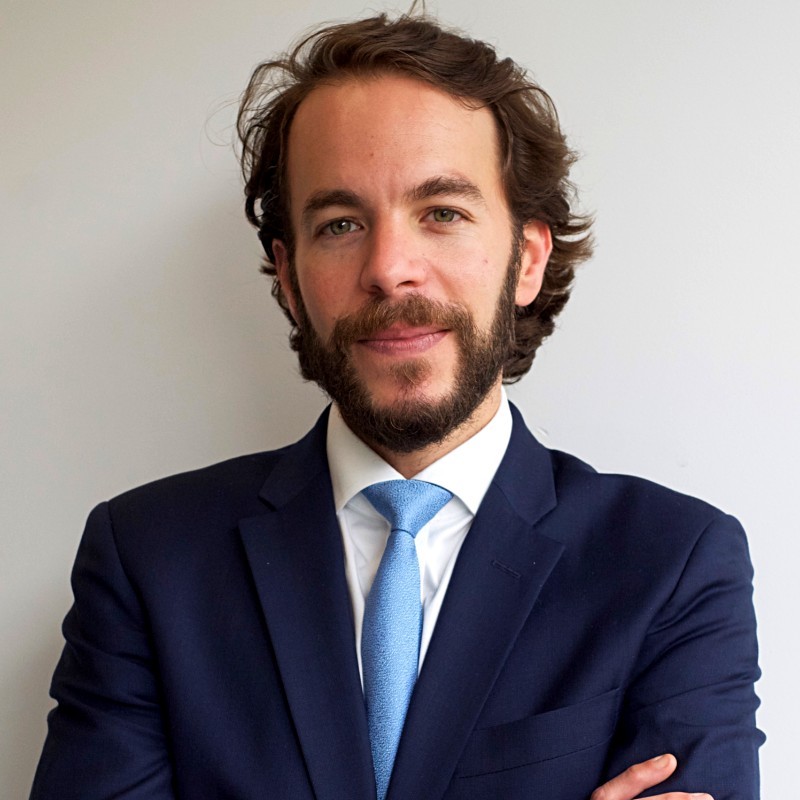
Kevin Sfez, Senior Underwriter – Credit and Political Risk, Tokio Marie HCC
In today’s volatile world, global trade relies on more than just ships, contracts and supply chains – it operates on trust. Whether it’s moving millions of dollars of critical equipment or shipping telecommunications infrastructure across borders, the expectation that everyone will hold up their end of the bargain is crucial. But trust alone isn’t enough to keep trade moving. What really underpins our global economy is something few people are aware of, never mind understand – Credit and Political Risk Insurance (CPRI).
I’ve worked in this niche for most of my professional life, and as a Senior Underwriter in CPRI for Tokio Marine HCC, what strikes me is how often this vital product operates behind the scenes. Whether it’s a food shipment to West Africa, a telecoms upgrade in Southeast Asia, or a defence contract outside the EU, our job is to ensure that if there’s political upheaval, sudden sanctions, economic default or armed conflict, our clients still get paid.
At its core, CPRI is about managing uncertainty. It covers losses resulting from non-payment due to commercial default, insolvency or political events like war, civil unrest, embargoes, currency inconvertibility, expropriation and government interference. Our clients include banks, commodity traders and large corporates, with some lending into emerging markets and others shipping goods into countries where politics are fragile and change comes fast.
Unlike traditional trade credit insurance, which is often cancellable and underwritten on a portfolio basis, our policies are typically non-cancellable and structured on a per-contract basis, looking at one deal, one buyer and one country at a time, providing cover for up to 15 years. It’s that degree of precision that makes CPRI unique.
We analyse the creditworthiness of the buyer, the stability of the importer’s country, and the nature of the goods involved. Are they essential or strategic or are they going to be politically sensitive? We keep tabs on local elections, shifts in party leadership and geopolitical flashpoints, as any of these incidents could derail a deal or trigger a claim.
There’s a common misconception that insurance only becomes relevant when things go wrong but a huge amount of CPRI’s value lies in what it does before a crisis hits. Its existence gives our clients the confidence they need to go ahead with a deal in the first place.
We are seeing an uptick in demand for this insurance as global tensions rise. Trade routes are increasingly politicised, sanctions shift frequently, elections are bringing abrupt regime changes, and extreme weather events – while not traditionally part of our coverage – are indirectly adding strain to already fragile systems.
Banks, in particular, are strong users of CPRI as it helps them reduce capital requirements on long-tenor deals by transferring risk to an insurer with strong financial strength. For commodity traders and corporates, the need is more market-driven, so when margins are down, insurance can be seen as a luxury, but in moments of geopolitical shock – such as a war breaking out or a sudden regime change – interest in the product heightens.
We’ve also seen more interest in areas like Unfair Calling of Guarantee coverage, particularly in regions where states may exert political pressure on commercial contracts. And coverage for Confiscation, Expropriation, Nationalisation and Deprivation (CEND) is increasingly attractive to those operating in high-risk regions.
What really makes this line of business different from other areas of insurance is how much it relies on judgment and experience. Underwriting here is about interpretation, reading between the lines of news reports, understanding regional political dynamics, and evaluating national leadership changes.
There are no shortcuts. You need to understand how politics works in countries as diverse as Nigeria, Armenia or Brazil. You need to know when an election is a formality and when it could upend everything, and you need to recognise when a buyer’s track record can be trusted and when it can’t.
The market is small and highly specialised with around 50–60 insurers globally who write CPRI, including about 40 Lloyd’s syndicates. Teams are typically small – sometimes just four or five underwriters – and you don’t last long in this field unless you have deep knowledge, a strong network and a solid reputation. This is not a business you can dip in and out of. When we issue a policy, we’re committing for up to 15 years, so stability and credibility matter – to brokers, clients, and especially to banks.
Case Study: Waiting for the Right Time
One recent example illustrates just how sensitive the timing and context of deals can be. We were asked by a client in the EU to underwrite a contract for the sale of strategic supplies. On paper, the deal made sense, but with elections looming and signs of political interference increasing in the target country, we advised the client to hold off.
The decision wasn’t based on any single data point. It came from a holistic understanding of the political landscape, informed by years of experience and ongoing monitoring. Once the elections conclude and the situation has stabilised, we will be able to revisit the deal, but that’s the kind of flexibility and judgment this line of work demands.
A career like no other
This isn’t a job you master in a couple of years. It takes time to develop the judgment needed to underwrite these complex risks, and there’s no substitute for living through the events yourself. When Iran was bombed or Brazil teetered on the edge of a coup, you couldn’t fully appreciate the risk implications unless you were underwriting during those moments.
You also need a genuine interest in global affairs. If you’re not the kind of person who would follow Senegalese politics or track defence procurement trends in Southeast Asia, this probably isn’t the field for you. But if you are, it’s an incredibly rewarding, intellectually rich line of work.
Once you’re in, you’ll find few people ever leave, as experience is your currency, and the longer you’ve been around, the more valuable you become. There’s no routine either as one day you might be insuring satellite exports to a Middle Eastern government, the next it’s food shipments into a country under IMF supervision. It’s endlessly varied, constantly evolving, and always relevant.
CPRI may never be front-page news, but without it, many of the trade flows we take for granted – the oil that powers our cities, the wheat that feeds millions, the infrastructure projects that modernise economies – simply wouldn’t happen.
In a world where geopolitical stability can no longer be taken for granted, this quiet, specialised corner of the insurance world plays a critical role in keeping goods, investment and trust moving. It doesn’t just protect deals, it makes them happen.
The information presented in this article is for informational purposes only. It should not be considered as legal, regulatory or financial advice, nor as an exhaustive description of the products or services mentioned.

Discover our dossier: ‘A dynamic and diverse sector: Non-Life Insurance & Reinsurance in Luxembourg’. It features expert analyses, key figures, concrete examples, as well as testimonials and podcasts to explore the professions, products, and the role of Luxembourg as a European hub.